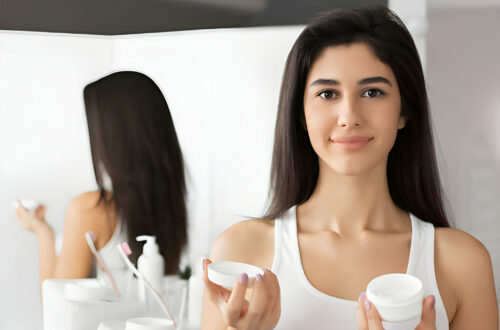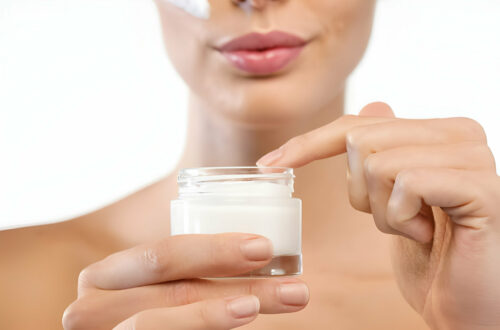Healthy skin is often described as skin that glows. You can improve your skin’s health with these 10 home remedies.
Your skin is your body’s biggest organ, so taking care of it is essential. Holistic skin care can help achieve this. Glowing skin usually indicates good health and energy, while dull or dry skin can leave you feeling less than your best.
Here are 10 items and lifestyle changes that you can include in your beauty and skincare routine. The best part? You probably already have everything you need in your kitchen, pantry, or medicine cabinet, including natural products for skin care.
- Use virgin coconut oil to soothe your skin. Coconut oil has anti-inflammatory, antioxidant, and healing properties. However, it may not be suitable for all skin types. Avoid it if you have a coconut allergy.
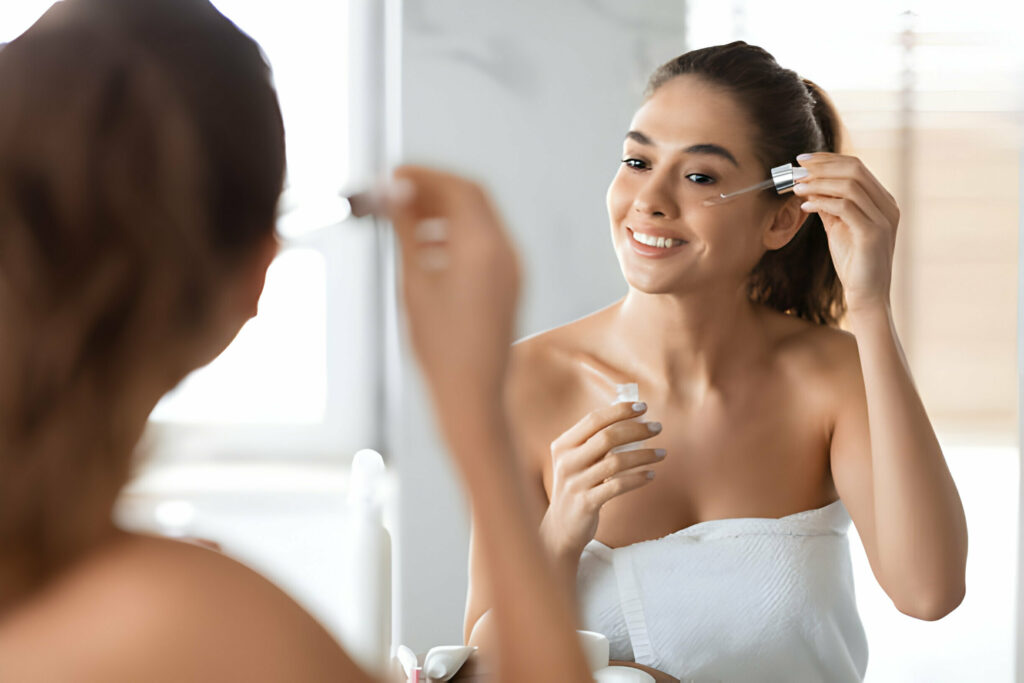
If it doesn’t irritate, you can use coconut oil in various ways, such as:
- Removing makeup
- Soothing your skin’s protective layer
- Promoting healthy, radiant skin beneath the surface layer
Research has shown that coconut oil is an effective moisturizer. Try applying a small amount of coconut oil to your face. Let it sit for a few minutes before rinsing it off with your regular cleanser.
- Aloe vera for Healthy and Resilient Skin Aloe vera is known for its healing properties and its ability to stimulate the growth of new skin cells. It’s also excellent at soothing and moisturizing your skin without blocking your pores. Using aloe vera after washing your face each day can give your skin a vibrant and healthy appearance.
However, it’s important to note that some people might be allergic to aloe vera. To be safe, perform a patch test by applying a small amount on your forearm. If there’s no negative reaction within 24 hours, it’s likely safe to use.
- Proper Moisturization After Cleansing To maintain healthy and youthful-looking skin, use moisturizers that lock in moisture, promote healing, and contain antioxidants. Even if your skin feels dry, avoid skipping moisturizer, and do not over-exfoliate.
Apply moisturizer while your skin is still damp, either after a shower or rinsing your face. This helps trap extra moisture, ensuring that your skin remains hydrated beyond the surface, leaving it feeling soft and smooth.
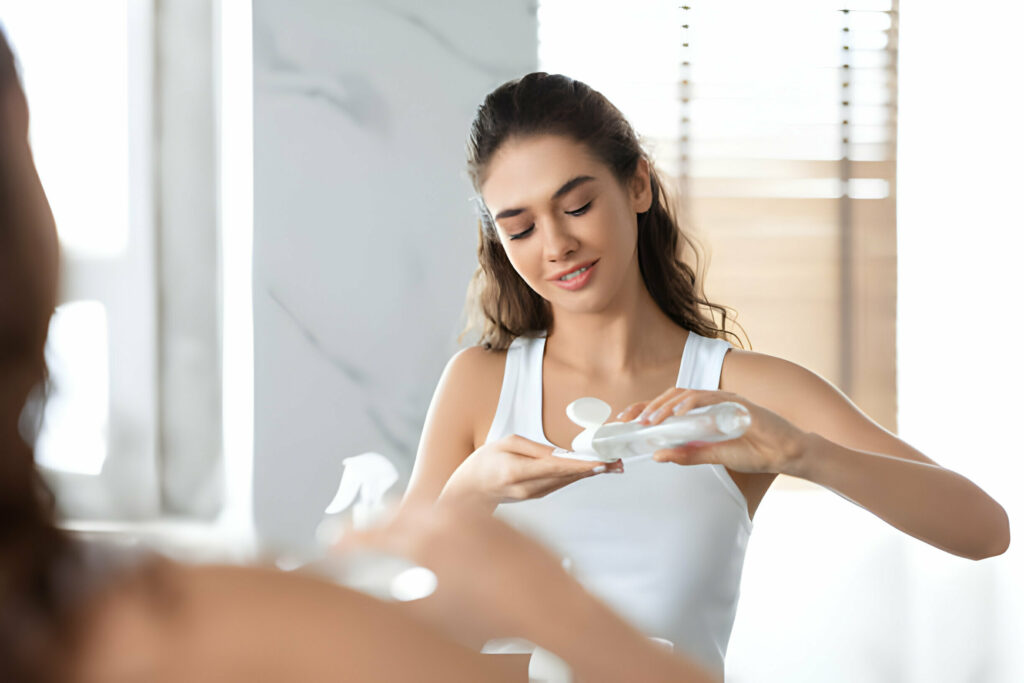
- Daily Sunscreen Protection Make wearing sunscreen with an SPF of 15 or higher a daily habit to protect your skin from harmful UV rays and reduce the risk of skin cancer. This also safeguards your skin against premature aging caused by sun exposure.
Apply a product with sunscreen every morning, regardless of the weather, even on cloudy or rainy days.
- Discover a Cleansing Routine That Suits You It’s important to strike a balance when it comes to washing your face. Overwashing can strip your skin of its natural moisture, while under washing might prompt your pores to produce excess oil to compensate.

For a healthy complexion, it’s usually ideal to cleanse your face after sweating, in the morning, and before bedtime.
- Steer Clear of Smoke and Secondhand Smoke Exposing your skin to cigarette smoke results in a layer of harmful chemical toxins on your face. These toxins increase oxidative stress in your skin cells, leading to premature aging. Incorporating antioxidant skin care can help combat this oxidative stress and protect your skin.
If you smoke, think of your skin as one more reason to consider quitting.
- Hydrate with More Water Your skin comprises cells that depend on adequate water for optimal function. While research on the direct connection between water intake and skin health is ongoing, a 2015 study suggested a strong link between increased water consumption and healthier skin.
Aim to drink at least eight 8-ounce glasses of water daily.
- Eat Well for Healthy Skin A diet rich in fruits and vegetables can increase the vitamins and antioxidants in your body. The Mayo Clinic suggests that incorporating healthy fats, like those found in fish oils, while avoiding processed foods with numerous preservatives, may directly impact the appearance of your skin, making it look healthier.
- Consider Probiotics Probiotic supplements can:
- Boost your immune system
- Improve your digestion
- Reduce bloating and inflammation in your digestive tract
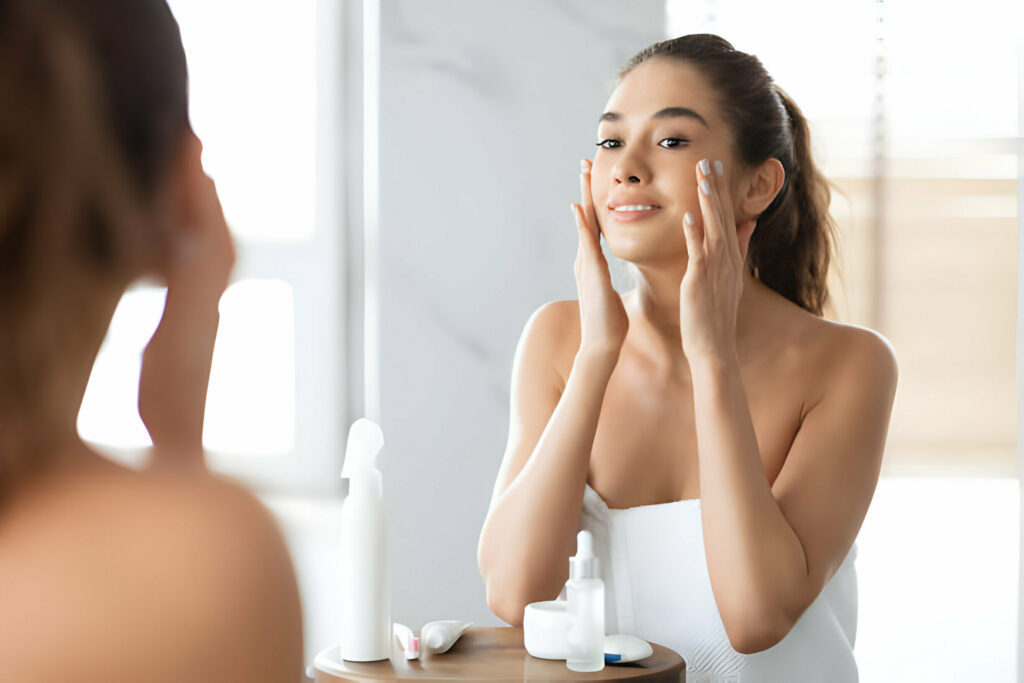
According to a 2014 study, probiotics might also contribute to healthy hair and visibly glowing skin.
- Limit Your Shower Time Steam and heat can open your pores and help eliminate toxins from your skin. However, prolonged exposure to hot water can strip your skin of its natural oils, leaving it looking tired and dull. Try to keep your skin’s contact with very hot water to a minimum.
You might even consider lowering the water temperature toward the end of your shower to improve circulation, potentially giving your face a more toned and youthful appearance. As an added benefit, this could also enhance your immune system.
In Conclusion: Caring for your skin is a form of self-care that can result in visibly radiant skin. Sometimes, factors like stress, nutritional deficiencies, hormonal imbalances, and other health issues can make achieving glowing skin more challenging. Incorporating peptides in skin care can help address some of these issues, promoting healthier and more resilient skin.
If you’re worried about the condition of your skin, consult your primary care provider or a dermatologist. Dull, dry, flaky, or patchy skin can be indicative of underlying health conditions.



